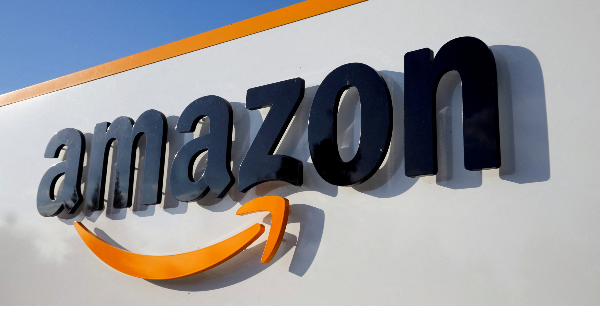Key Takeaways
As the world rapidly transitions to 5G technology, investors are keen to identify the best 5G tech stocks poised for growth. Companies like Qualcomm (QCOM), T-Mobile (TMUS), and Verizon (VZ) are leading the charge, offering innovative solutions and infrastructure essential for 5G deployment and accelerating growth in the telecommunication sector. Investing in these top 5G stocks can provide significant returns as the demand for faster, more reliable wireless connectivity continues to surge.
What is 5G and its Investment Potential
5G, the fifth generation of cellular network technology, revolutionizes connectivity with faster speeds and more reliable connections than its predecessors. Utilizing higher frequency radio waves, 5G networks can carry more data over greater distances at unprecedented speeds. This advancement allows users to experience download speeds up to 100 times faster than 4G, significantly enhancing mobile internet usage, streaming, and real-time applications.
The investment potential of 5G is immense, with global 5G subscriptions expected to surpass 2 billion in 2024.. This rapid adoption is driving substantial infrastructure spending, creating lucrative opportunities for investors. Companies involved in 5G technology, from network providers to semiconductor manufacturers, stand to benefit significantly as the demand for faster, more reliable wireless connectivity continues to grow.
Top 5G Companies by Category
Across the 5G landscape, key companies are dominating portions of the 5G implementation. Network operators like T-Mobile US, Verizon Communications, AT&T, and Dish Networks are expanding 5G broadband services to residences while technology and network equipment providers such as Ericsson, and Samsung are at the forefront of telecommunications solutions.
New developments in edge computing are being led by Amazon Web Services (AWS) and Microsoft Azure to offer robust cloud infrastructure platforms to expand 5G capabilities globally.
Network Operators
T-Mobile US (TMUS), Verizon Communications (VZ), and AT&T (T) are leading the charge in the 5G space, rapidly expanding their 5G wireless broadband services to residences across the United States. These network operators are investing heavily in infrastructure to provide faster, more reliable connections, enhancing user experiences and driving the adoption of smart home technologies. T-Mobile’s extensive 5G coverage, Verizon’s ultra-wideband network, and AT&T’s robust 5G+ service are setting new standards in the industry.
Dish Networks (DISH) is also making significant strides in the 5G arena, rolling out its 5G wireless network and solidifying its position as a leader in the satellite-TV service provider industry. By leveraging its existing infrastructure and spectrum assets, Dish is poised to offer competitive 5G services, aiming to disrupt the market and provide consumers with more choices. This strategic move not only enhances Dish’s service offerings but also positions it as a formidable player in the 5G landscape.
Network Equipment

Ericsson, a leading multinational technology company based in Sweden, is renowned for its comprehensive telecommunications and networking solutions. As a pioneer in 5G technology, Ericsson offers a robust portfolio that includes the Ericsson Radio System, 5G Core, and 5G Transport. The company’s innovative solutions, such as dynamic spectrum sharing (DSS) and Uplink Booster, have positioned it as a key player in the global 5G market. With the largest number of 5G deals worldwide, Ericsson continues to drive the evolution of 5G technology, providing end-to-end solutions that cater to both consumer and enterprise needs.
Nokia, a Finnish multinational company, excels in telecommunications, information technology, and consumer electronics. Known for its strong presence in the 5G infrastructure market, Nokia offers a wide range of products and services, including the AirScale Radio Access, 5G Core, and Cloud RAN solutions. The company’s commitment to innovation and sustainability has made it a preferred partner for many global telecom operators. Similarly, Samsung, a South Korean conglomerate, has made significant strides in the 5G space with its advanced network equipment and solutions.
Semiconductor and Chipset
Broadcom is a global technology company that designs, develops, and supplies a wide range of semiconductor and infrastructure software solutions.
Broadcom, a global technology leader, excels in designing, developing, and supplying a diverse range of semiconductor and infrastructure software solutions. Known for its robust product portfolio, Broadcom provides essential components for data centers, networking, enterprise software, broadband, wireless, storage, and industrial applications. The company's innovative 5G chipsets are pivotal in enhancing high-speed connectivity and supporting the growing demand for advanced telecommunications infrastructure.
MediaTek, a prominent Taiwanese semiconductor company, specializes in designing and manufacturing system-on-chip (SoC) processors and other electronic components. Renowned for its cost-effective and high-performance solutions, MediaTek's 5G chipsets are integral to a wide array of devices, from smartphones to IoT applications. The company's commitment to innovation and affordability makes it a key player in the global 5G market. Meanwhile, Qualcomm, a U.S.-based multinational, stands out for its cutting-edge semiconductor and telecommunications equipment. Qualcomm's 5G chipsets, including the Snapdragon series, are at the forefront of mobile technology, driving advancements in connectivity, speed, and efficiency.
Real Estate Infrastructure

American Tower Corporation, a leading American real estate investment trust (REIT), plays a pivotal role in the 5G revolution by owning and operating wireless and broadcast communications infrastructure. With a vast portfolio of over 220,000 communication sites globally, American Tower is at the forefront of enabling 5G technology. The company’s strategic investments in small cells, distributed antenna systems (DAS), and macro towers ensure robust and reliable 5G connectivity. As 5G adoption accelerates, American Tower’s extensive infrastructure network positions it as a key player in supporting the next generation of wireless communication.
Cellnex, a prominent European telecommunications infrastructure company, excels in the design, deployment, and management of wireless telecommunications infrastructure. Operating across multiple countries in Europe, Cellnex boasts a portfolio of over 130,000 sites, including towers, rooftops, and small cells. The company’s innovative approach to infrastructure sharing and its commitment to expanding 5G networks make it a crucial partner for telecom operators. By facilitating efficient and widespread 5G deployment, Cellnex is instrumental in driving digital transformation and connectivity advancements across Europe.
Edge Computing
Amazon Web Services (AWS) is a leading global cloud infrastructure platform that plays a pivotal role in the 5G edge computing landscape. AWS offers a comprehensive suite of services that enable businesses to deploy and manage applications closer to end-users, reducing latency and improving performance. With its extensive global reach, AWS provides services to customers in over 245 countries, making it a key player in the edge computing market. AWS Wavelength, a service designed to bring AWS compute and storage services to the edge of 5G networks, allows developers to build applications that require ultra-low latency, such as real-time gaming, video streaming, and IoT applications.
Microsoft Azure is another major player in the 5G edge computing space, known for its robust cloud infrastructure. Azure boasts over 160 interconnected physical data centers across 60 regions and 170 Points of Presence (POPs), providing a vast network for edge computing solutions. Azure Edge Zones extend Azure services to the edge of 5G networks, enabling high-performance, low-latency applications. This makes Azure an ideal choice for industries such as healthcare, manufacturing, and smart cities, where real-time data processing is crucial.
How to Invest in 5G Stocks
If you’re shy of investing in individual telecom stocks, you can diversify your exposure to the 5G megatrend with an ETF. Here are the top three 5G ETFs to consider:
First Trust Indxx NextG ETF (NXTG) - This ETF targets companies involved in the development and deployment of next-generation digital cellular technologies, including 5G. It offers broad exposure to the 5G ecosystem, including telecom operators, infrastructure providers, and device manufacturers.
Defiance Next Gen Connectivity ETF (FIVG) - FIVG invests in companies that are at the forefront of 5G technology, including those involved in infrastructure, hardware, and services. It provides a more targeted approach to 5G infrastructure, focusing on companies that are essential to the rollout and maintenance of 5G networks.
Vanguard Communication Services ETF (VOX) - This ETF includes a wide range of communication services companies, from traditional telecom operators to media and internet service providers. It offers diversified exposure to the broader communication sector, which is significantly impacted by the adoption of 5G technology
5G Penny Stocks
Read More: Find the top penny stocks across the platform
Here are three promising 5G penny stocks to consider:
Globalstar Inc. (GSAT) - Globalstar provides mobile satellite services, which are crucial for areas lacking terrestrial networks. Their recent partnership with Nokia to deploy Band 53 spectrum at the Port of Seattle highlights their innovative approach and potential for growth.
UTStarcom Holdings Corp. (UTSI) - UTStarcom focuses on telecom infrastructure, offering solutions to expand and modernize networks. Their technology supports cloud-based services, mobile, and streaming applications, making them a key player in the 5G rollout.
Borqs Technologies Inc. (BRQS) - Technologies specializes in IoT and 5G products, including smart devices and connected solutions. Their diverse product range and focus on emerging technologies position them well for future growth in the 5G market.
Conclusion
The 5G revolution presents a transformative opportunity for investors, with its potential to reshape industries and drive significant economic growth. From network operators and equipment manufacturers to semiconductor companies and real estate infrastructure, each category offers unique opportunities and challenges.
Investing in 5G stocks requires a strategic approach, considering both established giants and emerging players in the market. While top-tier companies provide stability and long-term growth, 5G penny stocks can offer high-risk, high-reward scenarios for those willing to venture into more speculative investments.
As 5G continues to expand, its integration with edge computing and other advanced technologies will further enhance its impact, making it a pivotal area for future investment.























Image by torstensimon from Pixabay
Key Takeaways
Top 5G Network Operators: Qualcomm (QCOM), T-Mobile (TMUS), and Verizon (VZ)
Top 5G Network Equipment Makers: Ericsson (ERIC) and Nokia (NOK)
Top 5G Semiconductor and Chipset Makers: Broadcom (AVGO), Mediatek (traded on Taiwanese market)
Top 5G Real Estate Infrastructure: American Tower Corporation (AMT), Cellnex (traded on European markets)
Top 5G in Edge Computing: Amazon (AMZN) and Microsoft (MSFT)
Top 5G ETFs: First Trust Indxx NextG ETF (NXTG), Defiance Next Gen Connectivity ETF (FIVG), and Vanguard Communication Services ETF (VOX)
Top 5G Top 5G Penny Stocks: Globalstar Inc. (GSAT), UTStarcom Holdings Corp. (UTSI), and Borqs Technologies Inc. (BRQS)
As the world rapidly transitions to 5G technology, investors are keen to identify the best 5G tech stocks poised for growth. Companies like Qualcomm (QCOM), T-Mobile (TMUS), and Verizon (VZ) are leading the charge, offering innovative solutions and infrastructure essential for 5G deployment and accelerating growth in the telecommunication sector. Investing in these top 5G stocks can provide significant returns as the demand for faster, more reliable wireless connectivity continues to surge.
What is 5G and its Investment Potential
5G, the fifth generation of cellular network technology, revolutionizes connectivity with faster speeds and more reliable connections than its predecessors. Utilizing higher frequency radio waves, 5G networks can carry more data over greater distances at unprecedented speeds. This advancement allows users to experience download speeds up to 100 times faster than 4G, significantly enhancing mobile internet usage, streaming, and real-time applications.
The investment potential of 5G is immense, with global 5G subscriptions expected to surpass 2 billion in 2024.. This rapid adoption is driving substantial infrastructure spending, creating lucrative opportunities for investors. Companies involved in 5G technology, from network providers to semiconductor manufacturers, stand to benefit significantly as the demand for faster, more reliable wireless connectivity continues to grow.
Top 5G Companies by Category
Across the 5G landscape, key companies are dominating portions of the 5G implementation. Network operators like T-Mobile US, Verizon Communications, AT&T, and Dish Networks are expanding 5G broadband services to residences while technology and network equipment providers such as Ericsson, and Samsung are at the forefront of telecommunications solutions. New developments in edge computing are being led by Amazon Web Services (AWS) and Microsoft Azure to offer robust cloud infrastructure platforms to expand 5G capabilities globally.
Network Operators
T-Mobile US (TMUS), Verizon Communications (VZ), and AT&T (T) are leading the charge in the 5G space, rapidly expanding their 5G wireless broadband services to residences across the United States. These network operators are investing heavily in infrastructure to provide faster, more reliable connections, enhancing user experiences and driving the adoption of smart home technologies. T-Mobile’s extensive 5G coverage, Verizon’s ultra-wideband network, and AT&T’s robust 5G+ service are setting new standards in the industry. Dish Networks (DISH) is also making significant strides in the 5G arena, rolling out its 5G wireless network and solidifying its position as a leader in the satellite-TV service provider industry. By leveraging its existing infrastructure and spectrum assets, Dish is poised to offer competitive 5G services, aiming to disrupt the market and provide consumers with more choices. This strategic move not only enhances Dish’s service offerings but also positions it as a formidable player in the 5G landscape.
Network Equipment
Image by Jean Martinelle from Pixabay
Ericsson, a leading multinational technology company based in Sweden, is renowned for its comprehensive telecommunications and networking solutions. As a pioneer in 5G technology, Ericsson offers a robust portfolio that includes the Ericsson Radio System, 5G Core, and 5G Transport. The company’s innovative solutions, such as dynamic spectrum sharing (DSS) and Uplink Booster, have positioned it as a key player in the global 5G market. With the largest number of 5G deals worldwide, Ericsson continues to drive the evolution of 5G technology, providing end-to-end solutions that cater to both consumer and enterprise needs.
Nokia, a Finnish multinational company, excels in telecommunications, information technology, and consumer electronics. Known for its strong presence in the 5G infrastructure market, Nokia offers a wide range of products and services, including the AirScale Radio Access, 5G Core, and Cloud RAN solutions. The company’s commitment to innovation and sustainability has made it a preferred partner for many global telecom operators. Similarly, Samsung, a South Korean conglomerate, has made significant strides in the 5G space with its advanced network equipment and solutions.
Semiconductor and Chipset
Broadcom is a global technology company that designs, develops, and supplies a wide range of semiconductor and infrastructure software solutions. Broadcom, a global technology leader, excels in designing, developing, and supplying a diverse range of semiconductor and infrastructure software solutions. Known for its robust product portfolio, Broadcom provides essential components for data centers, networking, enterprise software, broadband, wireless, storage, and industrial applications. The company's innovative 5G chipsets are pivotal in enhancing high-speed connectivity and supporting the growing demand for advanced telecommunications infrastructure.
MediaTek, a prominent Taiwanese semiconductor company, specializes in designing and manufacturing system-on-chip (SoC) processors and other electronic components. Renowned for its cost-effective and high-performance solutions, MediaTek's 5G chipsets are integral to a wide array of devices, from smartphones to IoT applications. The company's commitment to innovation and affordability makes it a key player in the global 5G market. Meanwhile, Qualcomm, a U.S.-based multinational, stands out for its cutting-edge semiconductor and telecommunications equipment. Qualcomm's 5G chipsets, including the Snapdragon series, are at the forefront of mobile technology, driving advancements in connectivity, speed, and efficiency.
Real Estate Infrastructure
Image by Manuel de la Fuente from Pixabay
American Tower Corporation, a leading American real estate investment trust (REIT), plays a pivotal role in the 5G revolution by owning and operating wireless and broadcast communications infrastructure. With a vast portfolio of over 220,000 communication sites globally, American Tower is at the forefront of enabling 5G technology. The company’s strategic investments in small cells, distributed antenna systems (DAS), and macro towers ensure robust and reliable 5G connectivity. As 5G adoption accelerates, American Tower’s extensive infrastructure network positions it as a key player in supporting the next generation of wireless communication.
Cellnex, a prominent European telecommunications infrastructure company, excels in the design, deployment, and management of wireless telecommunications infrastructure. Operating across multiple countries in Europe, Cellnex boasts a portfolio of over 130,000 sites, including towers, rooftops, and small cells. The company’s innovative approach to infrastructure sharing and its commitment to expanding 5G networks make it a crucial partner for telecom operators. By facilitating efficient and widespread 5G deployment, Cellnex is instrumental in driving digital transformation and connectivity advancements across Europe.
Edge Computing
Amazon Web Services (AWS) is a leading global cloud infrastructure platform that plays a pivotal role in the 5G edge computing landscape. AWS offers a comprehensive suite of services that enable businesses to deploy and manage applications closer to end-users, reducing latency and improving performance. With its extensive global reach, AWS provides services to customers in over 245 countries, making it a key player in the edge computing market. AWS Wavelength, a service designed to bring AWS compute and storage services to the edge of 5G networks, allows developers to build applications that require ultra-low latency, such as real-time gaming, video streaming, and IoT applications.
Microsoft Azure is another major player in the 5G edge computing space, known for its robust cloud infrastructure. Azure boasts over 160 interconnected physical data centers across 60 regions and 170 Points of Presence (POPs), providing a vast network for edge computing solutions. Azure Edge Zones extend Azure services to the edge of 5G networks, enabling high-performance, low-latency applications. This makes Azure an ideal choice for industries such as healthcare, manufacturing, and smart cities, where real-time data processing is crucial.
How to Invest in 5G Stocks
If you’re shy of investing in individual telecom stocks, you can diversify your exposure to the 5G megatrend with an ETF. Here are the top three 5G ETFs to consider:
First Trust Indxx NextG ETF (NXTG) - This ETF targets companies involved in the development and deployment of next-generation digital cellular technologies, including 5G. It offers broad exposure to the 5G ecosystem, including telecom operators, infrastructure providers, and device manufacturers.
Defiance Next Gen Connectivity ETF (FIVG) - FIVG invests in companies that are at the forefront of 5G technology, including those involved in infrastructure, hardware, and services. It provides a more targeted approach to 5G infrastructure, focusing on companies that are essential to the rollout and maintenance of 5G networks. Vanguard Communication Services ETF (VOX) - This ETF includes a wide range of communication services companies, from traditional telecom operators to media and internet service providers. It offers diversified exposure to the broader communication sector, which is significantly impacted by the adoption of 5G technology
5G Penny Stocks
Globalstar Inc. (GSAT) - Globalstar provides mobile satellite services, which are crucial for areas lacking terrestrial networks. Their recent partnership with Nokia to deploy Band 53 spectrum at the Port of Seattle highlights their innovative approach and potential for growth. UTStarcom Holdings Corp. (UTSI) - UTStarcom focuses on telecom infrastructure, offering solutions to expand and modernize networks. Their technology supports cloud-based services, mobile, and streaming applications, making them a key player in the 5G rollout. Borqs Technologies Inc. (BRQS) - Technologies specializes in IoT and 5G products, including smart devices and connected solutions. Their diverse product range and focus on emerging technologies position them well for future growth in the 5G market.
Conclusion
The 5G revolution presents a transformative opportunity for investors, with its potential to reshape industries and drive significant economic growth. From network operators and equipment manufacturers to semiconductor companies and real estate infrastructure, each category offers unique opportunities and challenges. Investing in 5G stocks requires a strategic approach, considering both established giants and emerging players in the market. While top-tier companies provide stability and long-term growth, 5G penny stocks can offer high-risk, high-reward scenarios for those willing to venture into more speculative investments. As 5G continues to expand, its integration with edge computing and other advanced technologies will further enhance its impact, making it a pivotal area for future investment.